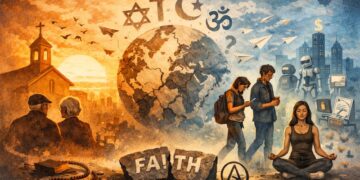Many people follow time-restricted fasting independently over a longer time and which, studies have shown, reduces body weight, fat, blood sugar, blood pressure and cholesterol. But those not used to longer routines need to be mindful about the food they eat.
By: Mohd Amin Mir
Is there a pattern to Ramadan fasting, which is basically a form of time-restricted eating, so that the body doesn’t lack energy during the month-long routine? Many people follow time-restricted fasting independently over a longer time and which, studies have shown, reduces body weight, fat, blood sugar, blood pressure and cholesterol. But those not used to longer routines need to be mindful about the food they eat.
HOW TO PLAN YOUR RAMADAN FAST?
For the pre-dawn meal (suhoor), opt for nutrient-dense and fibre-rich options like whole grains (oats, whole wheat bread, quinoa), complex carbohydrates, lean proteins, legumes, fruits, vegetables, healthy fats from nuts and seeds, low-fat dairy or plant-based alternatives. These provide lasting satiety and help regulate blood sugar by delaying its release. Drink enough water to avoid dehydration during the day.
When breaking the fast (iftar), it’s traditional to begin with a few dates and water or milk, as dates are an excellent source of natural sugars for an energy boost and minerals to replenish the body’s reserves.
Follow this with a balanced meal featuring complex carbohydrates like brown rice or whole wheat bread, lean proteins such as chicken or lentils, and an abundance of vegetables. Soups and stews are also excellent choices as they’re both hydrating and nutrient-rich.
Foods to avoid include deep-fried items, sugary snacks and heavily processed foods as these can cause discomfort, sluggishness and blood sugar spikes. Staying hydrated is crucial, so be sure to drink plenty of water and unsweetened beverages like herbal teas or fruit-infused waters during non-fasting hours.
During the month of Ramadan, prolonged fasting periods can lead to significant alterations in glucose homeostasis, particularly in individuals with diabetes mellitus. The lack of food and fluid intake during daylight hours can result in fluctuations in blood glucose levels, increasing the risk of both hypoglycaemia (low blood sugar) and hyperglycaemia (high blood sugar)
So consult an endocrinologist or a certified diabetes educator prior on whether you should fast at all. Medications, particularly insulin and certain oral hypoglycaemic agents, may need to be adjusted in terms of dosage and timing to accommodate the fasting periods. Regular monitoring of blood glucose levels, through self-monitoring of blood glucose (SMBG) or continuous glucose monitoring (CGM) is essential to promptly address any deviations from the target range.
Fasting during Ramadan can confer several potential health benefits, similar to those observed with intermittent fasting regimens. These include improved insulin sensitivity, better glycaemic control and reduced inflammation.
Fasting triggers a cellular process called autophagy, where damaged or dysfunctional components are recycled, potentially reducing the risk of age-related diseases and promoting cellular renewal. The caloric restriction during Ramadan fasting can lead to weight loss, particularly in individuals who are overweight or obese, provided they maintain a balanced diet during non-fasting hours.
Light physical activity, if permitted by the individual’s health status, can aid in glucose regulation. However, strenuous exercise should be avoided during fasting, especially in hot weather, to prevent dehydration and hypoglycaemias.Otherwise, walks are advised.
Author is in-charge ‘Record Room’ at DC Office,Anantnag.



